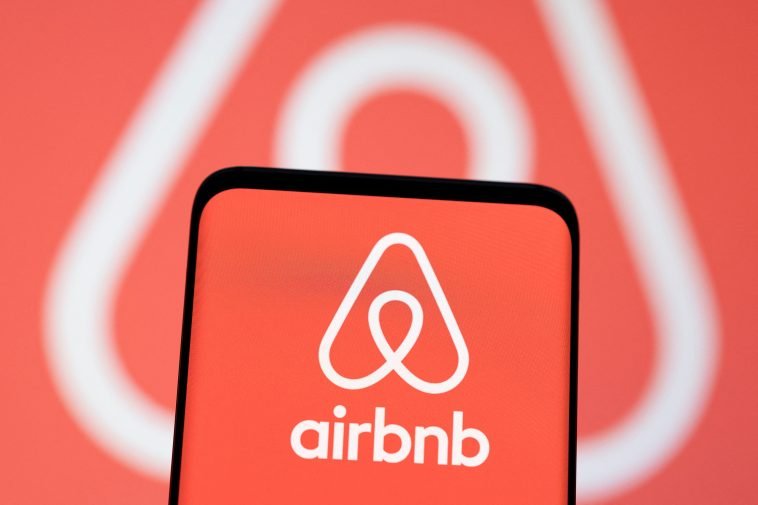Introduction
Investing in Airbnb properties has become a go-to way to make money in real estate, even if you’re just getting started.
Airbnb has transformed short-term rentals into a profitable side hustle (or even a full-time job) for many people, but what if you don’t have cash lying around for a down payment or a property investment?
You might assume owning or renting out an Airbnb property requires a large upfront investment, but you’ll be surprised to learn there are ways to get started with little to no money.
In this article, I’ll walk you through practical strategies to invest in Airbnb with little or no money out-of-pocket.
How Do I Invest In Airbnb With No Money?
1. Rental Arbitrage.
Rental Arbitrage is one of the most popular methods to start with Airbnb without owning a property. Here’s how it works: You rent a property from a landlord, then list it on Airbnb for short-term rentals.
By charging a higher nightly rate than your monthly rent divided by 30 (the average nights in a month), you can make a profit while covering the cost of rent.
Steps to Rental Arbitrage:
- Find a landlord open to subletting (this is key!).
- Explain your Airbnb plan, and emphasize that it can be mutually beneficial.
- Structure your rental agreement to allow for short-term rentals.
- Set up the property, making it as appealing as possible with decor, amenities, and photos.
Pros of Rental Arbitrage:
- No ownership cost or mortgage.
- Lower upfront investment than buying.
- Flexibility to exit if Airbnb hosting isn’t profitable.
Cons of Rental Arbitrage:
- Some cities have strict regulations around short-term rentals.
- You may be liable for damages beyond typical wear and tear.
- Finding landlords willing to agree can be challenging.
2. Airbnb Co-Hosting.
Airbnb Co-hosting lets you earn a portion of the revenue by managing someone else’s Airbnb listing.
As a co-host, you’d help with the daily operations like guest communication, check-ins and check-outs, cleaning arrangements, and handling any issues that arise.
Steps to Co-Host:
- Find a property owner with an Airbnb listing who needs assistance.
- Offer your services, explaining the benefits of having a co-host.
- Negotiate a percentage of the earnings, typically 10-20% of the booking revenue.
Pros of Co-Hosting:
- No upfront cost is required.
- No property or landlord commitments.
- Builds experience in managing Airbnb properties.
Cons of Co-Hosting:
- Limited earnings compared to owning or arbitraging.
- Earnings depend on property occupancy.
3. Airbnb Experiences.
Airbnb Experiences is another way to earn through Airbnb without actually owning or renting a property.
Here, you host experiences, which are activities or tours you can offer to travellers. These can range from cooking classes, walking tours, or other local experiences that showcase your unique skills or knowledge of the area.
Steps to Airbnb Experiences:
- Identify a skill, hobby, or activity you can offer.
- List it on Airbnb, ensuring it appeals to travellers.
- Price your experience competitively.
Pros of Airbnb Experiences:
- Requires no property investment.
- Flexible scheduling to work around your day job or other obligations.
- Lets you showcase your unique skills or hobbies.
Cons of Airbnb Experiences:
- Limited to cities or regions where travellers are interested in experiences.
- May not generate consistent revenue compared to rentals.
4. Crowdfunding.
Real estate crowdfunding is an indirect way to invest in Airbnb without owning or managing a property. Platforms like Fundrise or RealtyMogul allow you to invest small amounts in larger real estate projects, some of which include short-term rental properties.
Steps to Real Estate Crowdfunding:
- Find a reputable real estate crowdfunding platform.
- Choose a property or fund that aligns with short-term rental investments.
- Start with a small investment (some platforms allow as low as $500).
Pros of Crowdfunding:
- Requires little upfront money compared to buying a property.
- Passive investment, so no direct property management is required.
- Diversify your investment by pooling funds with others.
Cons of Crowdfunding:
- Returns can be slow and may not be as high as direct property management.
- Limited control over how properties are managed.
- Some platforms have minimum holding periods.
5. Partnering with Investors.
If you know potential investors but don’t have the cash to invest yourself, consider forming a partnership.
You’d manage the property and Airbnb operations, while the investor provides the funds to purchase or rent the property. Profits are then shared based on the agreed terms.
Steps to Partnering with Investors:
- Present a business plan, showcasing your role as the property manager.
- Set clear expectations on revenue splits.
- Form a legal partnership to protect both parties.
Pros of Partnering with Investors:
- Allows you to start without personal financial risk.
- Potentially high earnings if the property performs well.
- Builds credibility and experience in property management.
Cons of Partnering with Investors:
- Requires strong business relationships and trust.
- Limited control over revenue splits.
- More complex in terms of legal agreements.
6. House Hacking.
House hacking allows you to invest in Airbnb by renting out part of your own home. This could mean renting out a guest bedroom, basement, or separate unit on Airbnb. This method helps you cover your mortgage or rent while earning extra cash.
Steps to House Hacking:
- List a portion of your home on Airbnb.
- Set up the space with essentials to make it comfortable for guests.
- Market it with appealing photos and amenities.
Pros of House Hacking:
- Low-cost entry if you already own or rent the property.
- Helps cover living expenses or mortgage.
- Flexibility in choosing when to host.
Cons of House Hacking:
- Reduced privacy when sharing space with guests.
- Additional maintenance and cleaning required.
- Local regulations may limit short-term rentals in residential homes.
Frequently Asked Questions (FAQ)
1. Can I make money with Airbnb without owning property?
Yes, you can! Options like rental arbitrage, co-hosting, and Airbnb Experiences offer ways to earn without owning property. These approaches have helped many people enter the short-term rental market without major financial commitments.
2. How much can I realistically make with Airbnb?
Earnings vary widely based on the location, type of property, and season. According to Airbnb, the average U.S. host earns around $9,600 annually, though in popular destinations, this can be much higher.
3. Are there any risks with Airbnb investments?
Yes, there are risks, like regulatory challenges, potential property damage, and seasonal fluctuations in bookings. It’s essential to research local regulations and prepare financially for any downtime.
4. Is rental arbitrage legal everywhere?
Not everywhere. Some cities have strict short-term rental regulations, and landlords may not allow subletting. Always check local laws and your lease agreement.
5. How can I attract more guests to my Airbnb listing?
A great description, professional photos, competitive pricing, and good reviews will all make your listing stand out. Adding amenities like Wi-Fi, coffee, or free parking can also attract more bookings.
Conclusion
Investing in Airbnb with no money might seem challenging, but it’s entirely possible with creative strategies like rental arbitrage, co-hosting, and Airbnb Experiences.
With the right approach, you can start generating passive income and potentially work your way up to larger real estate investments.
Are you ready to explore these Airbnb options, or do you see yourself choosing a different route to reach your real estate goals?





GIPHY App Key not set. Please check settings